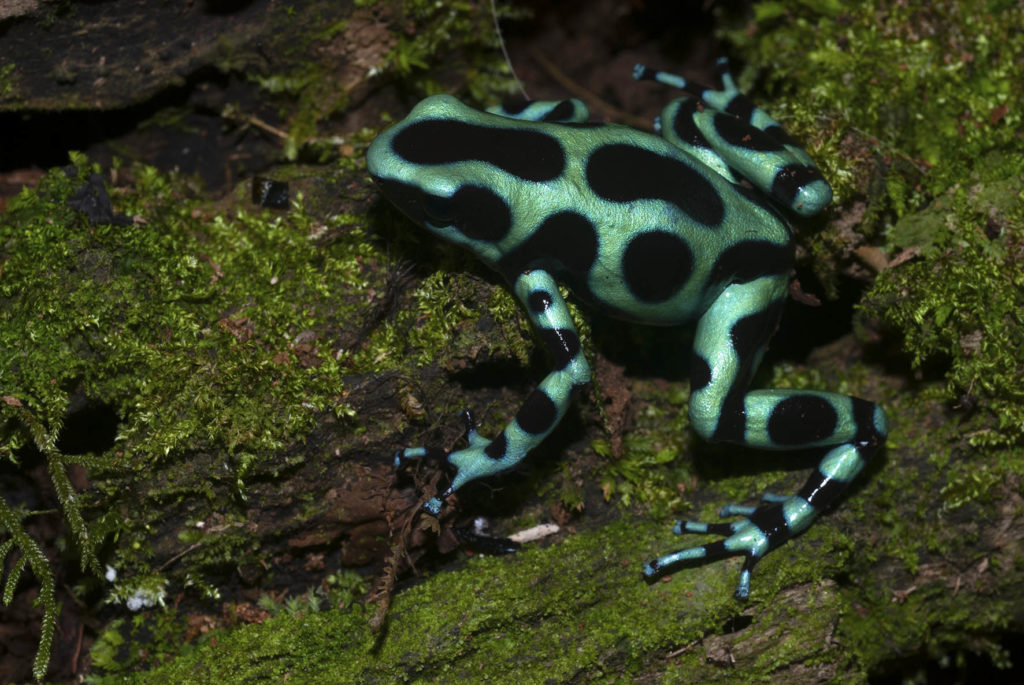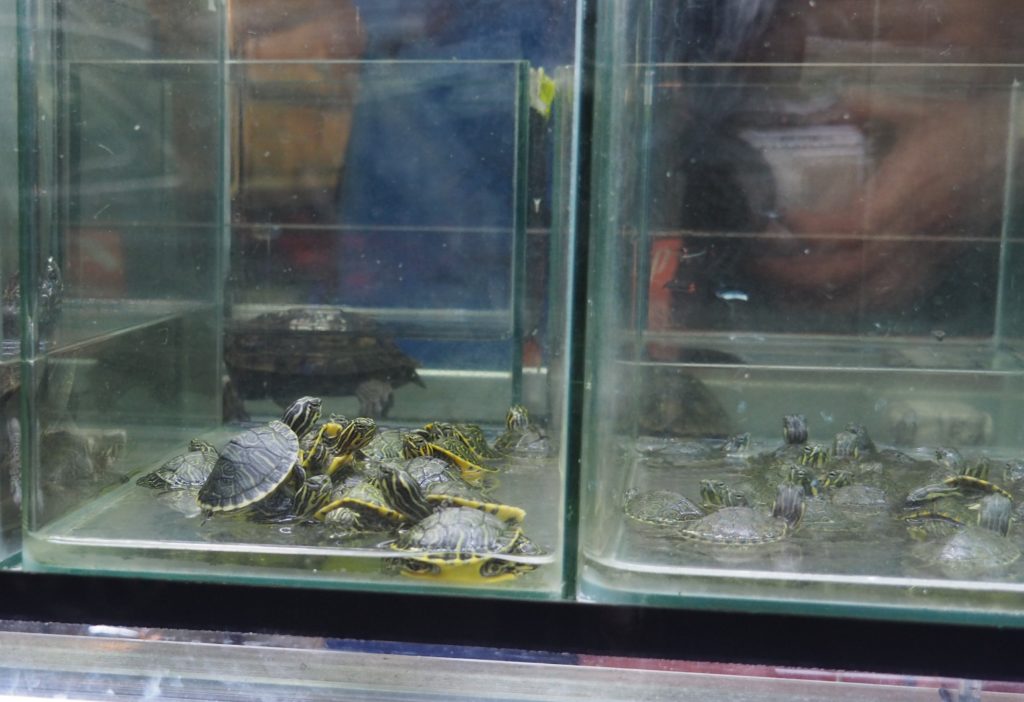5 Mins Read
Hong Kong’s penchant for keeping exotic animals as pets is putting species at risk of extinction, a new study claims. Between 2015-2019, four million animals were imported into the country to be kept domestically, heightening the risk of extinction for rare breeds.
The ADM Capital Foundation report is titled Wild, Threatened, Farmed: Hong Kong’s Invisible Pets. It lays bare the pressure that the exotic animal trade is putting on species worldwide. The report comes as a call to arms has been raised to tackle the increasing global biodiversity crisis. The report aims to stimulate the creation of new exotic pet regulations within Hong Kong.

Demand for exotic pets
“With at least four million animals imported in just five years, Hong Kong’s exotic pet trade has an outsized ecological footprint. Our demand for species like the Yellow spotted river turtle, African spurred tortoise and Pancake tortoise exacerbate unsustainable pressures on wild populations,” Sam Inglis, the report’s lead author, said in a statement. “The trade is fast-moving and high volume, comprising hundreds of species, both captive-bred and wild-caught, originating from almost every biome. Many are threatened with extinction.”
Humans have sought to secure unusual pets throughout history, but in recent years the trend has boomed, globally. In the U.S. alone, 50 percent of all pets are considered exotic. Experts have attributed this, in part, to the rise of social media and online shopping, as both offer access to animals. One trending video is all it takes to see a spike in the number of same-species pets being sought.

The on-cost of exotic pets
The report looks at how the varying demands of different species make them unsuitable for domestic habitation. Examples include African grey parrots, which need a huge amount of cognitive stimulation or they will be at risk of serious health problems. These can include anxiety, aggressive behaviour and self-mutilation. Smaller species, such as turtles, are notoriously aggressive and deemed disposable if and when they become too much trouble.
“There is a misconception that exotic pets that are smaller-sized entail cheaper costs of veterinary and home care,” Christie Wong, report co-author said in a statement. “However, treatment and surgeries for exotics require specialised skills, and to maintain an appropriate environment that supports good health for exotics with complex needs is by no means inexpensive.”
These issues have resulted in the rise of ‘trash pets’. When too difficult or expensive to care for, exotics are frequently given away, released into the wild or simply left to die.

Hong Kong’s continuation of the exotic pet trend
Less than 15,000 regulated animals were imported into Hong Kong in 2000. By 2016 the number had skyrocketed to 800,000. 700 different species were identified, many of which already faced extinction in the wild. These figures are hard to qualify, however, as the exotics trade is deemed ‘largely untraceable’.
The ADM report states that re-export of pets appears to have been minimal, with just 500,000 leaving the country. This has led to assumptions that the remaining 4.5 million have remained in Hong Kong homes or pet shops. Many have likely passed away, but there is a risk that some have been smuggled out illegally. An increasingly worrying trend is that of buying exotics to perform mercy releases. A known activity in Hong Kong, it poses a threat to native species and human health. The latter has become more of a pressing concern, following the Covid-19 outbreak.

What are the aims of the ADM report?
The report is an attempt to stimulate relevant agencies to create regulations surrounding exotic pets. Amendments to existing frameworks are being called for, alongside the promotion of better pet care practices from those within the trade and pet owners.
“Hong Kong’s lack of a positive list of acceptable exotic pets and failure to look behind imports of large numbers of animals from suspicious source countries, which should set off alarms for law enforcement agencies, encourages the importation of smuggled animals for the pet trade and is sending species that are at serious risk of extinction more quickly towards that fate,” Hong Kong University associate professor Amanda Whitfort said in a statement. “Our current policies and laws undermine the objectives of the UN Convention on Biological Diversity.”
It is strongly hoped that the sector will align with the One Health approach, which looks to guarantee a shared future for all creatures on the planet. It goes a step further and looks to secure a path to biodiversity recovery by 2030.
The report’s authors hope to trigger an amendment of the licensing system, permits for sellers and better traceability within the sector. They cite the 2017 revisions of the dog trade as a working model to copy. It is made clear that the report is not an attempt to prevent the exotic pet trade but rather, to ensure it is suitable, sustainable and regulated.
Hong Kong in the spotlight
Alongside the legal exotic pets sector, Hong Kong is under the microscope for its illegal wildlife trade hub status. Last year it was revealed that the country remains one of the biggest players in the black market.
Lead photo by Paul Hilton for Earth Tree Images.




